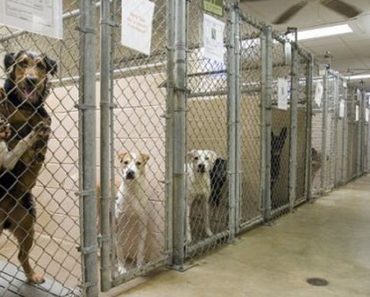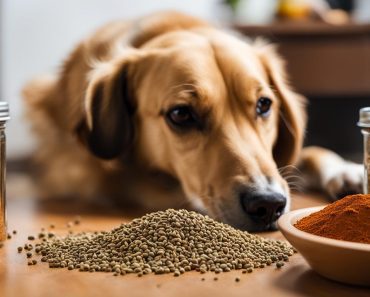Bringing a new puppy into your home is always exciting. However, it’s important to remember that puppies have weaker immune systems compared to adults, making them more susceptible to illnesses, especially if they are not fully vaccinated. As a responsible pet owner, it’s crucial to familiarize yourself with the common illnesses that can affect puppies, their symptoms, and how to provide the proper care to keep your furry friend healthy.
Key Takeaways:
- Common puppy illnesses can be prevented with proper vaccination and preventive care.
- Puppies are more vulnerable to illnesses due to their weaker immune systems.
- Parvovirus, distemper, kennel cough, leptospirosis, and gastrointestinal issues are some of the common illnesses in puppies.
- Understanding the symptoms and seeking veterinary care promptly is essential for the well-being of your puppy.
- Maintaining a routine of vaccinations, regular check-ups, and preventive treatments will help keep your puppy healthy.
Parvovirus (Parvo)
Parvovirus, also known as Parvo, is a highly contagious and potentially fatal illness that primarily affects puppies. It is transmitted through contact with infected feces and can survive in the environment for extended periods. Puppies with weak immune systems are particularly vulnerable to this virus, which can cause severe gastrointestinal symptoms.
Common symptoms of parvovirus include:
- Vomiting
- Diarrhea
- Lethargy
- Decreased appetite
It is crucial to seek veterinary care as soon as you suspect your puppy may have parvovirus. While there is no specific treatment for the virus itself, supportive care is vital for the puppy’s recovery. This may include intravenous fluids to prevent dehydration, medications to control vomiting and diarrhea, and antibiotics to prevent secondary infections.
Hospitalization is often recommended to ensure the puppy receives the necessary medical care and intensive monitoring. Prompt treatment and supportive care can significantly increase survival rates.
Preventing parvovirus is essential for safeguarding your puppy’s health. Vaccination is the most effective way to prevent this illness. Make sure your puppy receives the full course of vaccinations, which typically include the parvovirus vaccine, according to your veterinarian’s recommendations. Avoid exposing your puppy to potentially contaminated areas until they are fully vaccinated.
Distemper
Distemper is another highly contagious and often fatal virus that primarily affects the respiratory, gastrointestinal, and nervous systems of dogs and puppies. The virus is transmitted through sneezing, coughing, or shared food and water bowls.
Symptoms of distemper include:
- Nasal and eye discharge
- Fever
- Coughing
- Lethargy
- Decreased appetite
Unfortunately, there is no specific treatment for distemper, and supportive care is essential. Vaccination is the best way to prevent this illness in puppies.
Kennel Cough
Kennel cough, also known as canine infectious respiratory disease, is a common upper respiratory illness in puppies and dogs. It is transmitted through direct contact with other infected dogs or contaminated environments.
Symptoms of kennel cough include:
- A persistent cough
- Nasal or eye discharge
Most cases of kennel cough do not require treatment, as the symptoms are usually mild and self-limiting. However, in some cases, antibiotics or cough suppressants may be prescribed by a veterinarian.

If your puppy is experiencing kennel cough, it is important to provide them with a comfortable and stress-free environment. Avoid exposing them to other dogs or harsh weather conditions.
Here are some puppy healthcare tips to prevent kennel cough:
- Keep your puppy’s living area clean and free from potential contaminants.
- Avoid crowded places such as dog parks or kennels until your puppy is fully vaccinated.
- Follow a proper vaccination schedule recommended by your veterinarian.
- Provide your puppy with a balanced diet and regular exercise to boost their immune system.
Leptospirosis
Leptospirosis is a bacterial infection that poses a significant threat to puppy health. Puppies can contract this illness through exposure to infected urine, which makes it crucial to take preventive measures to safeguard their well-being. Leptospirosis primarily targets the kidneys and liver and, if left untreated, can be potentially fatal.
The symptoms of leptospirosis may include fever, decreased appetite, lethargy, and, in severe cases, chronic kidney and liver diseases. Recognizing these signs early on is key to prompt intervention and effective treatment. If you notice any of these symptoms in your puppy, it is important to consult a veterinarian for a proper diagnosis.
Fortunately, antibiotics are available to combat leptospirosis, making treatment possible. Additionally, it is essential to implement preventative measures to minimize the risk of infection. Simple actions, such as wearing gloves and washing hands thoroughly after cleaning urine, can go a long way in preventing puppy sickness caused by leptospirosis.
Vomiting and Diarrhea
Vomiting and diarrhea are common symptoms of underlying illnesses in puppies. These symptoms can be distressing for both the puppy and the owner, but it’s important to remain calm and take appropriate action. In many cases, these symptoms can be indicative of a minor issue that can be resolved with simple remedies and care. However, in some cases, they could be signs of a more serious condition that requires immediate veterinary attention.
Causes of Vomiting and Diarrhea in Puppies
Vomiting and diarrhea in puppies can have various causes, including:
- Diet changes: Sudden changes in diet, introduction of new foods, or consuming spoiled food can upset a puppy’s stomach.
- Intestinal parasites: Common parasites like roundworms, hookworms, and giardia can cause gastrointestinal disturbances, leading to vomiting and diarrhea.
- Infections: Puppies are susceptible to viral and bacterial infections that can cause digestive issues. Common culprits include parvovirus, coronavirus, and bacterial gastroenteritis.
- Stress: Puppies can experience stress due to changes in their environment, travel, or separation anxiety, which may lead to gastrointestinal upset.
- Ingestion of foreign objects: Puppies are curious and may ingest objects that can cause obstruction or irritation, leading to symptoms like vomiting and diarrhea.
Treatment and Care for Vomiting and Diarrhea
When your puppy experiences vomiting and diarrhea, it’s important to consult a veterinarian for a proper diagnosis and treatment plan. The vet will examine the puppy, ask about their symptoms, and may perform diagnostic tests if necessary. Treatment options can vary depending on the underlying cause and severity of the symptoms.
If the puppy is otherwise healthy and the symptoms are mild, the vet may recommend home care remedies such as:
- Withholding food for a short period to allow the digestive system to rest.
- Providing small, frequent meals of a bland diet like boiled chicken and rice.
- Ensuring the puppy stays hydrated by offering water or an electrolyte solution in small amounts.
- Avoiding unnecessary stress or exposure to potential sources of infection.
However, in cases where the symptoms are severe, persistent, or accompanied by other concerning signs such as blood in the stool or excessive lethargy, hospitalization may be necessary. The vet will provide appropriate medical intervention, which can include fluid therapy, anti-nausea medication, and antibiotics if needed.
Remember, while you can provide initial care at home, it is crucial to consult a veterinarian for proper diagnosis and treatment. Prompt medical attention can help alleviate your puppy’s discomfort, identify any underlying conditions, and prevent further complications.
Conclusion
In order to ensure the wellness of your puppy, it is essential to prioritize regular vaccinations, preventive care measures, and diligent monitoring for any signs of illness. By following a proper puppy vaccination schedule, you can shield your furry friend from common diseases like distemper, parvovirus, adenovirus, and parainfluenza. One of the recommended vaccines is the DAPP vaccine, which offers comprehensive protection against these ailments.
While vaccinations play a crucial role in maintaining puppy health, it is equally important to take preventive measures against parasite-related illnesses. Keeping up with flea, tick, and heartworm preventatives will safeguard your puppy from these harmful parasites and their associated health problems.
In addition to vaccinations and preventive care, regular veterinary check-ups are vital. These check-ups allow the veterinarian to assess your puppy’s overall health and detect any potential problems early on. Prompt attention to any unusual symptoms or behaviors is also important, as it can help identify underlying health issues and ensure quick and effective treatment.
By prioritizing puppy wellness and taking proactive steps to prevent and address health problems, you can provide your furry companion with a happy and healthy life. Remember to stay up to date with vaccinations, maintain preventive care routines, and stay vigilant for any signs of illness. Your puppy’s well-being is worth the effort and care!
FAQ
What are the common symptoms of parvovirus in puppies?
Common symptoms of parvovirus in puppies include vomiting, diarrhea, lethargy, and decreased appetite.
Is there a specific treatment for parvovirus?
There is no specific treatment for parvovirus, but supportive care is essential for the puppy’s recovery. Hospitalization is often recommended for proper medical care and increased survival rates.
What are the symptoms of distemper in puppies?
Symptoms of distemper in puppies include nasal and eye discharge, fever, coughing, lethargy, and decreased appetite.
Is there a specific treatment for distemper?
Unfortunately, there is no specific treatment for distemper. Supportive care is essential, and vaccination is the best way to prevent this illness in puppies.
What are the symptoms of kennel cough in puppies?
Symptoms of kennel cough in puppies include a persistent cough and nasal or eye discharge.
Do puppies with kennel cough require treatment?
Most cases of kennel cough do not require treatment, as the symptoms are usually mild and self-limiting. However, in some cases, antibiotics or cough suppressants may be prescribed by a veterinarian.
How is leptospirosis transmitted to puppies?
Leptospirosis is transmitted to puppies through exposure to infected urine.
What are the symptoms of leptospirosis in puppies?
Symptoms of leptospirosis in puppies include fever, decreased appetite, lethargy, and in some cases, chronic kidney and liver diseases.
How is vomiting and diarrhea treated in puppies?
Treatment for vomiting and diarrhea in puppies depends on the cause and may range from outpatient therapy to surgery and hospitalization. It is important to consult a veterinarian for proper diagnosis and treatment.
How can I keep my puppy healthy?
Keeping your puppy healthy involves regular vaccinations, preventive care, and attentive monitoring for any signs of illness. Vaccinations, such as the DAPP vaccine, help prevent common puppy diseases, and maintaining a routine of flea, tick, and heartworm preventatives is crucial in preventing parasite-related illnesses. Regular veterinary check-ups and prompt attention to any unusual symptoms or behaviors will ensure that your puppy stays happy and healthy.






